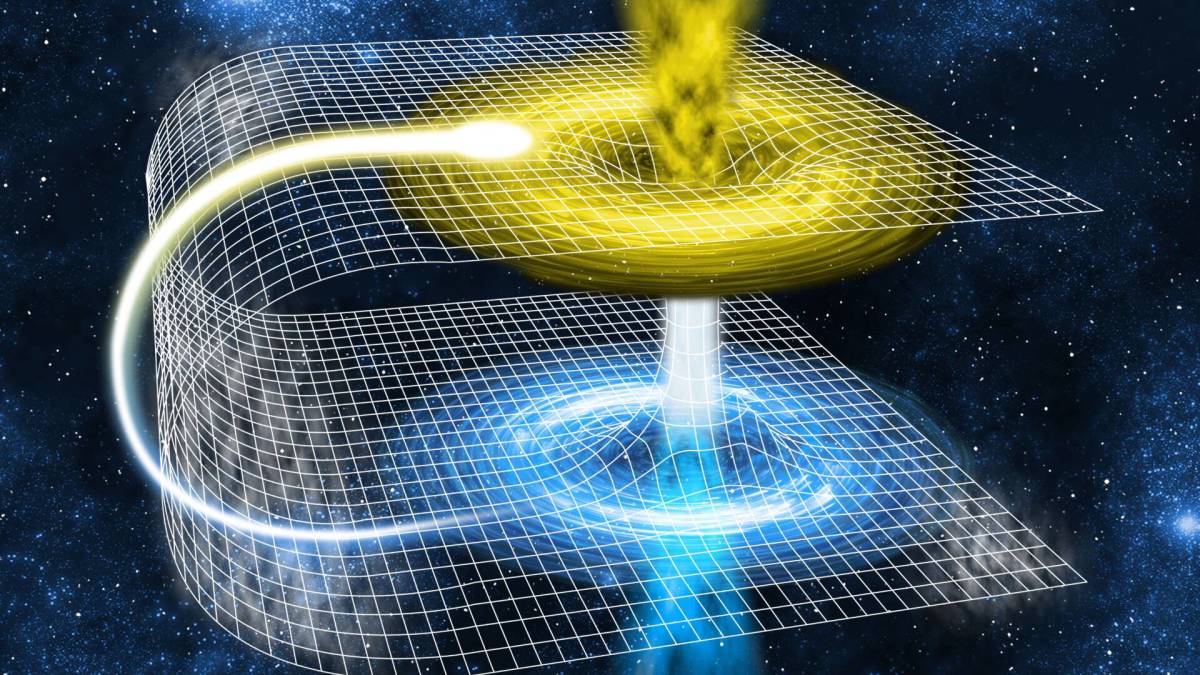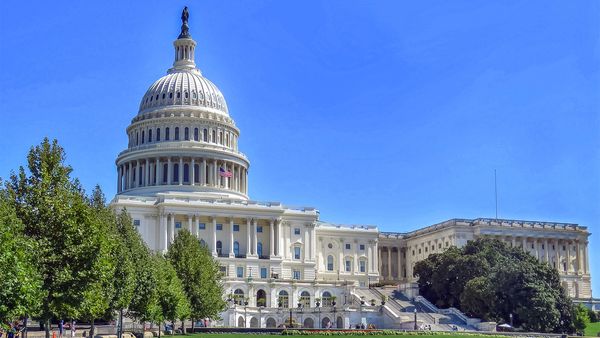
The popularized fictional portrayal of a wormhole — prominently featured in "Interstellar" — doesn't quite match up to the theoretical reality. Though there is currently no evidence that wormholes, unlike black holes, exist, there is a relatively straightforward theory around their possibility.
That theory begins, according to astrophysicist Neil deGrasse Tyson, with a simple fact: space and time are intricately and forever conjoined with one another in a kind of fabric. A wormhole involves the warping of that fabric which results in the distortion of space and time.
Related: Neil deGrasse Tyson Has a Genius Theory About Alien Life on Earth
This is often visualized by picturing the Universe laid out on a flat sheet of paper. Traveling from one end to the other could take innumerable years, but folding the paper in half (warping the fabric) would make those two points suddenly very close to one another.
If that folded paper could then be punctured, people could theoretically distort the fabric of space and time to instantaneously reach a distant location.

Shutterstock
If such a wormhole were to exist, Tyson said on a recent episode of his podcast StarTalk, "You can have a hole that you pass through and just come out the other side."
The reality of this scientific theory, he added, is one that looks much more like the portals in "Doctor Strange" than it does the long, star-studded tunnels featured in other movies. The best example of a practical wormhole, he said, is represented by the doors in "Monsters Inc."
"While they never said it in 'Monster's Inc.,' those are wormholes. Period," he said.
Things to do with wormholes
Related: Neil DeGrasse Tyson shares an eye-opening take on recent alien findings
As with any transformative new technology, the ability to access and even control wormholes would dramatically change the way global society functions, reimagining and restructuring the world's economy. In a hypothetical scenario where humans have access to and control over wormholes, DoorDash and GrubHub become a thing of the past.
As would airplanes. And trains. And cars.
"Imagine if the back of your refrigerator were connected to your grocer," Tyson said. "There is no transportation network involved. What that ends up doing is completely removing the transportation sector of the world."
Highways, cars, planes, airports and ships would no longer need to exist. Travel would be instantaneous, for everyone, all the time.
"This is a readjustment to the economy," Tyson said. "That's happened many times before. Nobody's making horse-drawn carriages anymore. The entire transportation sector would go out of business basically overnight. It's a fascinating reality."
Get investment guidance from trusted portfolio managers without the management fees. Sign up for Action Alerts PLUS now.







